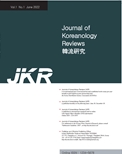- 권한신청
- E-ISSN2950-8835
'English Fever' in South Korean Educational History
Abstract
The nation's economic development goals of the South Korea were implemented successfully, and a wave of Confucian-inspired fervor for education resulted in unprecedented economic growth in South Korea. Despite the longstanding reputation of Confucianism as an impediment to industrial growth, its beneficial social ideals, such as the deification of study and truthfulness, are now largely viewed as a key driver in South Korea's economy and greater education. Confucianism's positive societal ideals include the veneration of study and sincerity. This study examines the phenomenon of 'English Fever' in South Korean educational history and figured out four main phenomenon to explain the topic of the study Theses are the following: (1) The Growing Influence of English in South Korean Education, (2) The Effects of Teaching English in Schools, (3) The Effect of English Education on Admissions to universities, and (4) Social Implications of English Education. This study finally argues that modern-day South Korea's academic fervor can be traced back to the country's Confucian educational roots and that it has been bolstered by its ideology of an academic accomplishment-centered society and its principle of academic sectarianism. These traits can also be observed in other East Asian nations that uphold the Confucian legacy.
- keywords
- Educational History, Korean Education Fever, Korean Educational Development
- 다운로드 수
- 조회수
- 0KCI 피인용수
- 0WOS 피인용수














